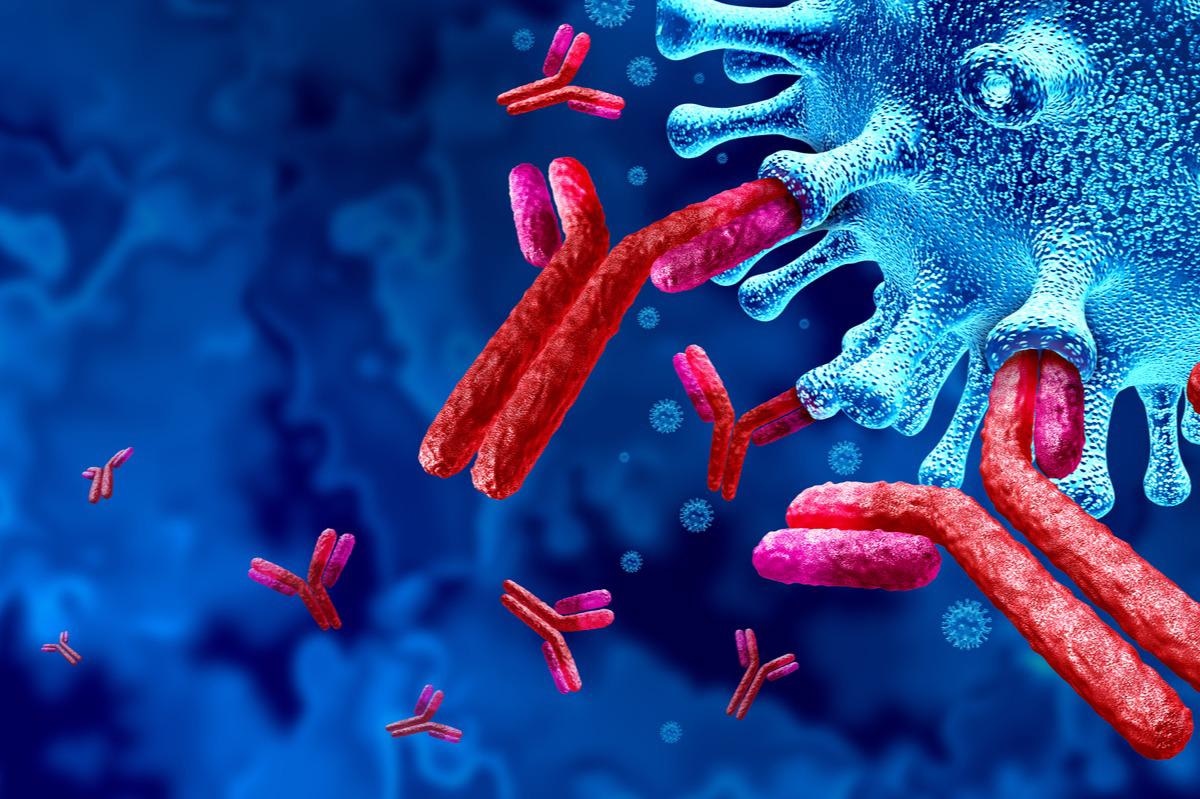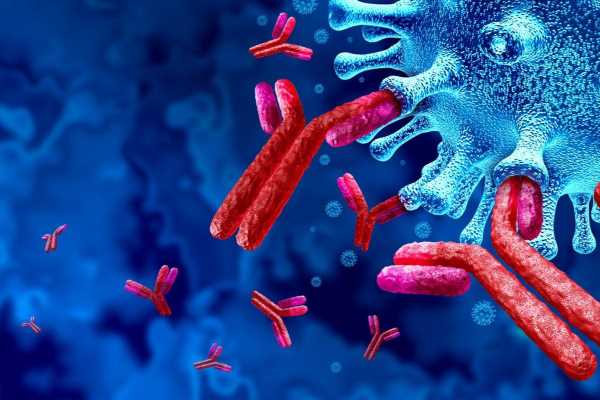A recent study published in the Cell Reports Medicine journal investigated the impact of pre-existing severe acute respiratory syndrome coronavirus 2 (SARS-CoV-2) infection-induced immunity on vaccine-induced immunity.

Background
The constant emergence and evolution of SARS-CoV-2 variants have continued to be a threat to pre-existing coronavirus disease 2019 (COVID-19) immunity induced because of natural infection or vaccinations. Understanding the durability of vaccine-induced immunity and its interaction with natural immunity is critical.
About the study
The present study characterized the humoral response of SARS-CoV-2-recovered and naïve individuals to COVID-19 vaccination by either Moderna (messenger ribonucleic acid (mRNA)-1273) or Pfizer (BNT-162b2) vaccines.
A longitudinal group of SARS-CoV-2-recovered and naïve individuals vaccinated with either of the two vaccines were recruited. The team generated Vero E6-transmembrane serine protease 2 (TMPRSS2) cells by transfecting Vero E6 cells with a mammalian plasmid called pCAGGS.
Two days after transfection, the trypsinization of the cells was performed. Almost 10 days later, the authors isolated individual colonies of cells and propagated them into viral stocks.
The team propagated the novel coronavirus (nCoV)/USA_WA1/2020 (WA/1) from an infectious clone of SARS-CoV-2. The SARS-CoV-2 Beta variant (B.1.351) was also isolated and propagated to generate a working viral stock. Furthermore, human coronavirus-19 (hCoV-19)/USA/PHC658/2021 (B.1.617.2) was obtained from nasal swabs collected from participants in May 2021. The B.1.617.2 variant was then purified by plaque assay using Vero E6-TMPRSS cells.
The team then collected peripheral blood in cell preparation tubes (CPTs) or heparin tubes from participants after SARS-CoV-2 infection or vaccination. Plasma and peripheral blood mononuclear cells (PBMC) were isolated from these samples at different time points including one before vaccination and six during follow-ups post-vaccination. The PBMCs were then treated and analyzed via flow cytometry.
The team also performed binding analyses on the plasma and serum samples collected using one or more multiplexed antigen panels to confirm the removal of the receptor-binding domain (RBD)-binding antibodies.
A focus reduction neutralization test (FRNT) was also executed. Furthermore, the authors separated RBD-specific antibodies from the plasma samples. This was then followed by neutralization assays. The specificity of RBD antibodies was estimated by staining with fluorescently labeled RBD. The team also compared the SARS-CoV-2-specific immune memory after infection with that post-vaccine administration. This was conducted by assessing subjects from the recovered and naïve groups before and after each vaccine dose, and then one, three, and six months after completion of the vaccination schedule.
Results
A total of 67 individuals who had previously received a SARS-CoV-2 mRNA vaccine were eligible for this study. Among these, 39 participants were followed up for approximately 12 months after a confirmed diagnosis of SARS-CoV-2 infection, while 28 participants had no reported SARS-CoV-2 infection. BNT162b2 vaccines were administered to 18 naïve and 26 recovered participants while the mRNA-1273 was received by nine naïve and 14 recovered individuals.
Also, the median age of the naïve participants was 34 years while that of the recovered group was 55 years.
Robust immune response was observed in recovered participants toward either vaccine, with median levels of RBD-specific memory B cells (MBCs) at 0.42% of a cluster of differentiation-19 (CD19+) cells in BNT162b2-vaccinated participants and 1.01% of CD19+ cells in mRNA-1273-vaccinated subjects after the first vaccine dose. Notably, the second vaccine dose did not show any additional increase in RBD-specific MBCs after either vaccination.
On the other hand, RBD-specific MBC levels in naïve participants had insignificant responses post the first vaccine dose, which rose following the second dose with median levels of 0.14% and 0.22% of CD19+ cells for BNT162b2 and mRNA-1273 vaccines, respectively.
The study also observed the durability of RBD-specific MBC responses among both naïve and recovered vaccinees in all study cohorts across three to six months post-immunization. Also, a slight decrease in RBD-specific MBCs was found in convalescent individuals over time while naïve individuals showed an increase in RBD-specific MBCs for up to six months post-vaccination and had levels comparable to those found in recovered individuals at this time point.
Overall, the study showed that mRNA vaccination resulted in the robust generation of RBD-specific MBC in both recovered and naïve vaccinees.
The results also highlighted that one vaccine dose may be sufficient to protect recovered individuals against SARS-CoV-2 reinfections while no noteworthy difference was found between the two mRNA-based vaccines studied by this team.
Conclusion
The study findings showed that COVID-19 vaccination is as efficient or better at inducing a robust immune response compared to infection-induced immunity alone.
The study also noted the significant specificity of the neutralizing activity exhibited by both Pfizer and Moderna vaccines and the higher durability of the humoral immune response compared to vaccination-induced immunity.
- Mantus, G., et al. (2022). Pre-existing SARS-CoV-2 immunity influences potency, breadth, and durability of the humoral response to SARS-CoV-2 vaccination. Cell Reports Medicine. doi: https://doi.org/10.1016/j.xcrm.2022.100603 https://www.cell.com/cell-reports-medicine/fulltext/S2666-3791(22)00120-3
Posted in: Medical Condition News | Disease/Infection News | Healthcare News
Tags: Antibodies, Antigen, Assay, Blood, Cell, Coronavirus, Coronavirus Disease COVID-19, covid-19, Cytometry, Evolution, Flow Cytometry, Heparin, Immune Response, immunity, Immunization, Medicine, Plasmid, Receptor, Respiratory, Ribonucleic Acid, SARS, SARS-CoV-2, Serine, Severe Acute Respiratory, Severe Acute Respiratory Syndrome, Syndrome, Transfection, Vaccine

Written by
Bhavana Kunkalikar
Bhavana Kunkalikar is a medical writer based in Goa, India. Her academic background is in Pharmaceutical sciences and she holds a Bachelor's degree in Pharmacy. Her educational background allowed her to foster an interest in anatomical and physiological sciences. Her college project work based on ‘The manifestations and causes of sickle cell anemia’ formed the stepping stone to a life-long fascination with human pathophysiology.
Source: Read Full Article
